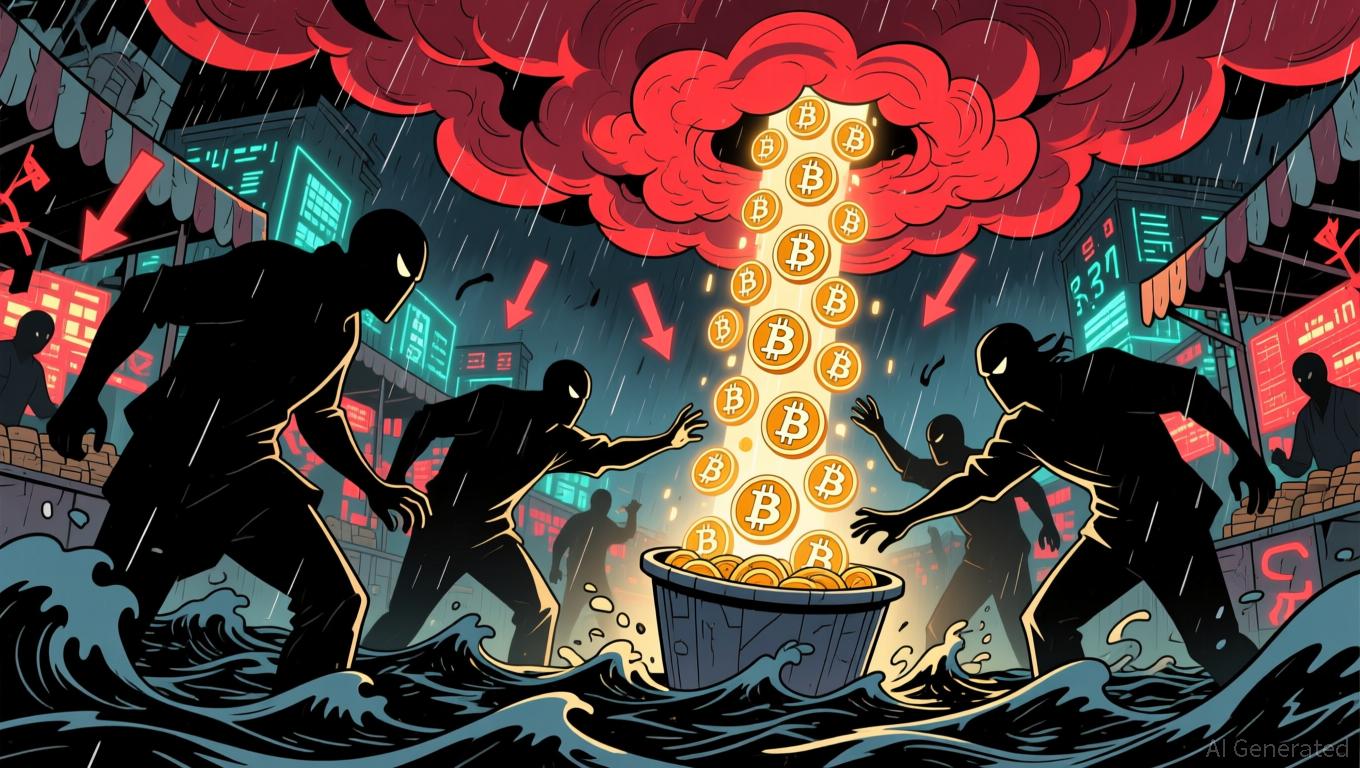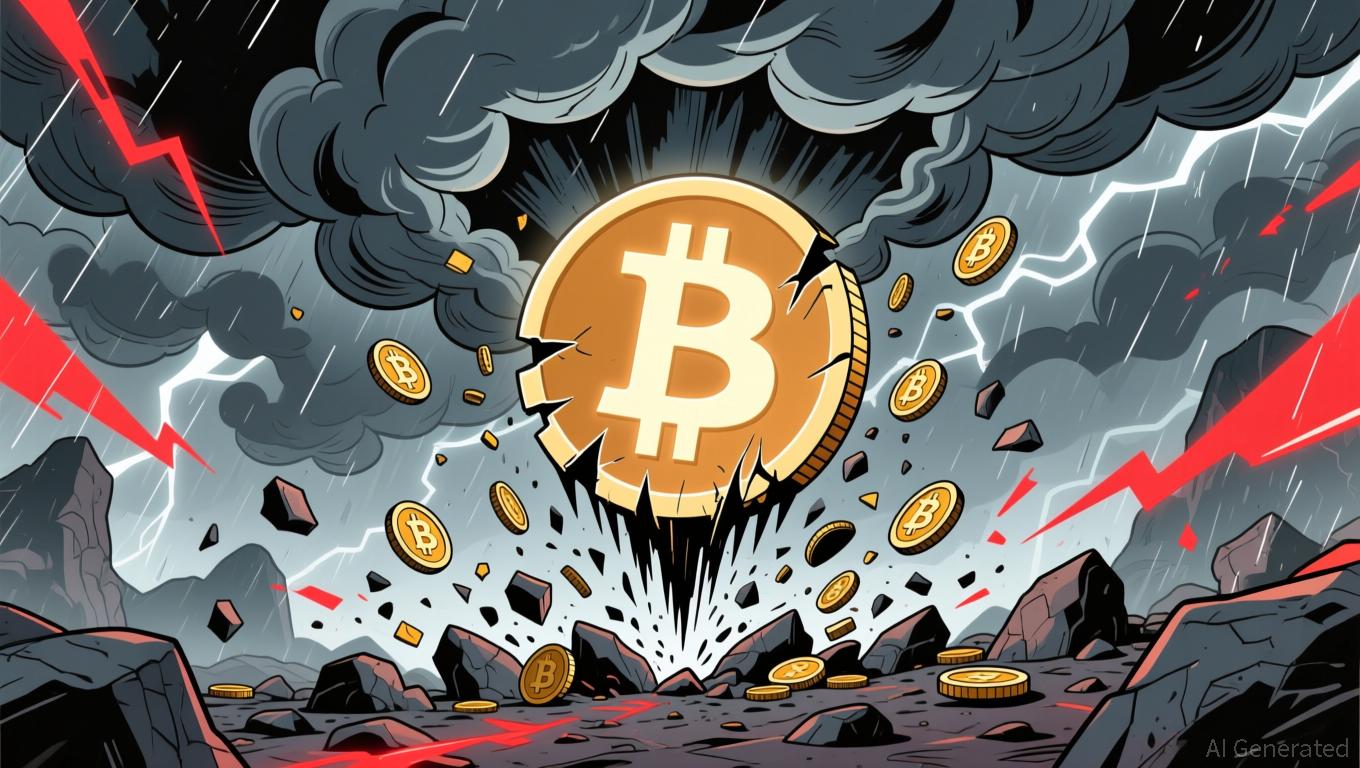The ChainOpera AI Token Collapse: An Alert for Cryptocurrency Initiatives Powered by AI
- ChainOpera AI's COAI token collapsed 96% in late 2025, exposing systemic risks in AI-driven crypto ecosystems. - Hyper-centralized governance (87.9% supply controlled by 10 wallets) paralyzed crisis response during algorithmic stablecoin failures. - Unvalidated "black box" AI models caused 270% surge in technical issues, triggering feedback loops of panic selling and liquidity crises. - The 2025 GENIUS Act's strict compliance demands exacerbated ChainOpera's collapse, highlighting regulatory gaps in AI-D
Centralized Governance: A Pathway to Disaster
ChainOpera’s most critical weakness lay in its highly centralized governance framework.
Technical Shortcomings: The Pitfalls of Opaque AI
ChainOpera’s reliance on unproven, non-transparent AI algorithms for liquidity and price control proved disastrous under pressure.
Regulatory Challenges: The GENIUS Act’s Side Effects
The GENIUS Act, enacted in the U.S. in 2025 to oversee AI and crypto development, may have unintentionally hastened ChainOpera’s demise. While the law sought to improve openness and responsibility,
Systemic Hazards: The Risks of Uniformity
Looking beyond ChainOpera’s individual mistakes, the collapse points to larger systemic dangers within AI-powered DeFi.
Key Takeaways:
XAI
, Oversight, and Decentralized Models
The ChainOpera incident stands as a warning for the AI-crypto industry.
As AI becomes more embedded in the crypto world, ChainOpera’s lessons are unmistakable: progress must be balanced with caution, responsibility, and a focus on long-term stability. Moving forward, cooperation among technologists, regulators, and investors will be essential to create systems that value security without hindering innovation.
Disclaimer: The content of this article solely reflects the author's opinion and does not represent the platform in any capacity. This article is not intended to serve as a reference for making investment decisions.
You may also like
Bitcoin News Update: Bitcoin's Recent Decline: Can Institutional Investors Help Steady the Market or Intensify the Slump?
- Bitcoin's price drop below $85,000 has intensified debates as long-term holders offload over 400,000 BTC, per economist Peter Schiff's warning about "weak hands" deepening selloffs. - High-profile exits like Owen Gunden's $1.3B BTC liquidation highlight profit-taking by OGs, while institutions via ETFs have absorbed 2.39M BTC since 2024, per Ark Invest. - Market fragility worsens as gamma exposure forces dealers to sell near $85,000 support, but institutional demand could stabilize prices if buying conti

YFI Value Drops 4.78% Over the Past Week as Market Fluctuations Continue
- YFI rose 0.1% in 24 hours but fell 4.78% in seven days, with 14.2% monthly and 50% annual declines. - Price movements reflect broader market instability, not project-specific updates or governance changes in Yearn.finance. - Analysts predict YFI remains sensitive to macroeconomic trends and global investor sentiment in the near term. - Token consolidation continues without fundamental shifts, urging investors to monitor on-chain metrics and protocol updates.

Bitcoin News Today: Bitcoin Drops to $90K—Is This a Prime Buying Chance or the Start of a Deeper Downturn?
- Bitcoin fell below $90,000, pushing 70% of active capital into losses and erasing $120B in market value. - Short-term holders face >30% drawdowns, with fear metrics hitting 2-year lows as $1.9B in leveraged positions liquidated. - Analysts cite historical rebounds after extreme fear, but MicroStrategy's leveraged holdings risk further selling if prices drop. - Institutional actions and Fed policy uncertainty remain key factors, though oversold indicators suggest potential 40% near-term rebound.

Coast Guard Strengthens Prohibition of Hate Symbols to Combat Antisemitism and Extremist Activity
- U.S. Coast Guard reversed a policy to reclassify hate symbols like swastikas and nooses from "potentially divisive" to prohibited, following backlash from lawmakers and advocacy groups over antisemitism risks. - The reversal came after a leaked draft proposal aligned with Trump-era Pentagon directives, which critics argued weakened harassment definitions and accountability for hate incidents. - Coast Guard reaffirmed strict prohibitions on divisive symbols, emphasizing severe punishment for violations, b
